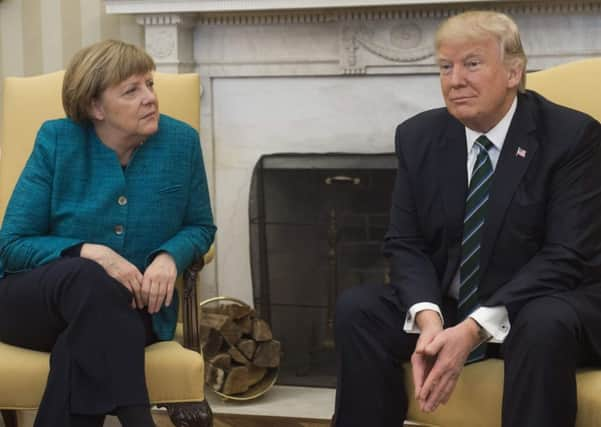Bill Jamieson: Look beyond politics to the markets
This article contains affiliate links. We may earn a small commission on items purchased through this article, but that does not affect our editorial judgement.


Amid rising concerns of a swing to populist, Eurosceptic parties with attendant risks to the European single currency, this was not a region for the faint-hearted.
But there have been sound reasons to question this view. First, there is a difference between the world of national politics and Europe-based multinational businesses. Whether in car manufacture, pharmaceuticals and biomedics, clothing, engineering or IT, continental Europe has long offered a wide range of successful global businesses, much of whose revenues are earned outwith continental Europe.
• READ MORE: Europe thinks again about its future
Advertisement
Hide AdAdvertisement
Hide AdSecond, the eurozone on average has been experiencing a gradual improvement in economic growth: glacial though this has looked, it is an improvement long looked for and which has been working to reduce regional unemployment. And third, equity markets have been discounting political turbulence. Media coverage for the past 18 months has hyped up political risk concerns, suggesting that a global populist bandwagon, which has already swept across the UK and the US, is now an unstoppable force that will sweep away Europe’s centrist governments.
The first widely predicted continental European domino to fall was the Netherlands, where the populist Geert Wilders looked set to top the poll last week. But in the event, his vote support fell well short of all the fevered speculation while the country’s long tradition of coalition politics would have made it virtually impossible for him to head a government.
Now attention swings to France, where Marine Le Pen of the National Front looks set to win the first round of the vote for the presidency on 23 April. But it is still considered unlikely she will prevail in the second, run-off, poll on 7 May. The poor performance of Wilders will not have helped “Le Bandwagon”. As for Germany, it is unlikely the Alternative for Germany Party will be a serious challenge to the chancellorship of Angela Merkel, pictured.
Now, in the aftermath of Donald Trump, nothing can be ruled out, and the strong support for Le Pen could make the French election close-run. Many have rushed to explain populism as a global phenomenon. But it has powerful local and domestic characteristics which should caution against sweeping judgments that a rising or ebbing tide in one country can automatically carry through into another.
Where does all this leave continental equity markets? Much of Europe’s problems – political, economic and financial – are in the price. Over the past ten years, as the Financial Times columnist John Authers has pointed out, in dollar terms the FTSE-Eurofirst 300 has underperformed the S&P500 by more than 50 per cent. And it now trades at 1.7 times book value against 3.12 for the US.
While there is an obvious political risk premium for investing in Europe, this looks to have overcooked it. And, bearing out my earlier point about the difference between “political” Europe and the performance of the continent’s businesses, several European-focused investment trusts have performed exceptionally well in the face of febrile headlines.
The European Investment Trust managed by Edinburgh Partners is up by 28.8 per cent over one year and by 71 per cent over five; JP Morgan European Growth has gained more than 25 per cent over one year and 96 per cent over five; and TR European Growth managed by Henderson Global Investors has streaked ahead by 52 per cent over one year and by 193 per cent over five. All three trusts are still standing at discount of more than 10 per cent to net assets. They may have a lot further to go if politics in Europe does not turn out to be as scary as pundits have predicted.
Advertisement
Hide AdAdvertisement
Hide AdJP Morgan’s European Growth trust manager Stephen Macklow-Smith argues that investors should see through the political mayhem: Europe’s political uncertainty, he says, masks the growing economic recovery that makes the region’s stock markets the cheapest they have ever been compared with the US.
Meanwhile, how bizarre that a rise in US interest rates helped to push the FTSE 100 to a record high last week. The UK’s blue-chip index, now almost 4 per cent higher this year, edged up 9 points to close at 7,424.96 last Friday for a weekly gain of 81.8 points or 1.1 per cent on the week.
The latest rise followed a 25 basis points rise in US interest rates – weakening the dollar and giving a fillip to the pound. The Bank of England meanwhile maintains a “hawkish” neutrality on interest rates, voting to hold rates at 0.25 per cent.